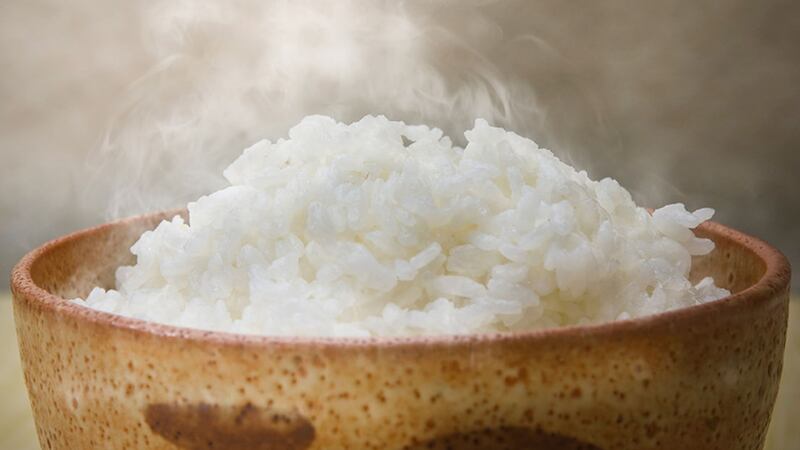Researchers have discovered a new way to make the consumption of rice safer.
Contamination with cancer-causing arsenic is a major problem in some regions of the world.
Academics at Queen's University Belfast have discovered they can reduce the presence of the chemical by modifying processing methods at traditional, small-scale parboiling plants in Bangladesh.
This new method also has the added benefit of increasing the calcium content of rice, the experts said.
Professor Andrew Meharg of the Institute for Global Food Security said: "There has long been a search for ways to remove arsenic from rice that is both low tech and can be widely adapted.
"Our research findings show that arsenic removal can be readily conducted using this post-harvest processing of rice."
He examined if parboiling wholegrain rice (with the husk removed) would reduce the levels of different forms of arsenic compared with parboiling rough rice.
The husk can have high levels of inorganic arsenic, and it could also act as a barrier, preventing arsenic species from leaving the rest of the grain during parboiling.
People in Bangladesh eat about a pound of rice per person per day, according to statistics from the International Rice Research Institute.
This consumption is among the highest in the world, placing Bangladeshis at risk of elevated exposure to arsenic.
Arsenic can cause cancer and may enter rice from the soil of flooded fields.
Parboiling wholegrain rice instead of parboiling rough rice reduced levels of arsenic by about a quarter in the final polished grain, while increasing calcium by 213 percent, the study showed.
However, the new method reduced potassium by 40 per cent.
The researchers said potassium loss must be balanced with the advantages of reduced arsenic and increased calcium.








